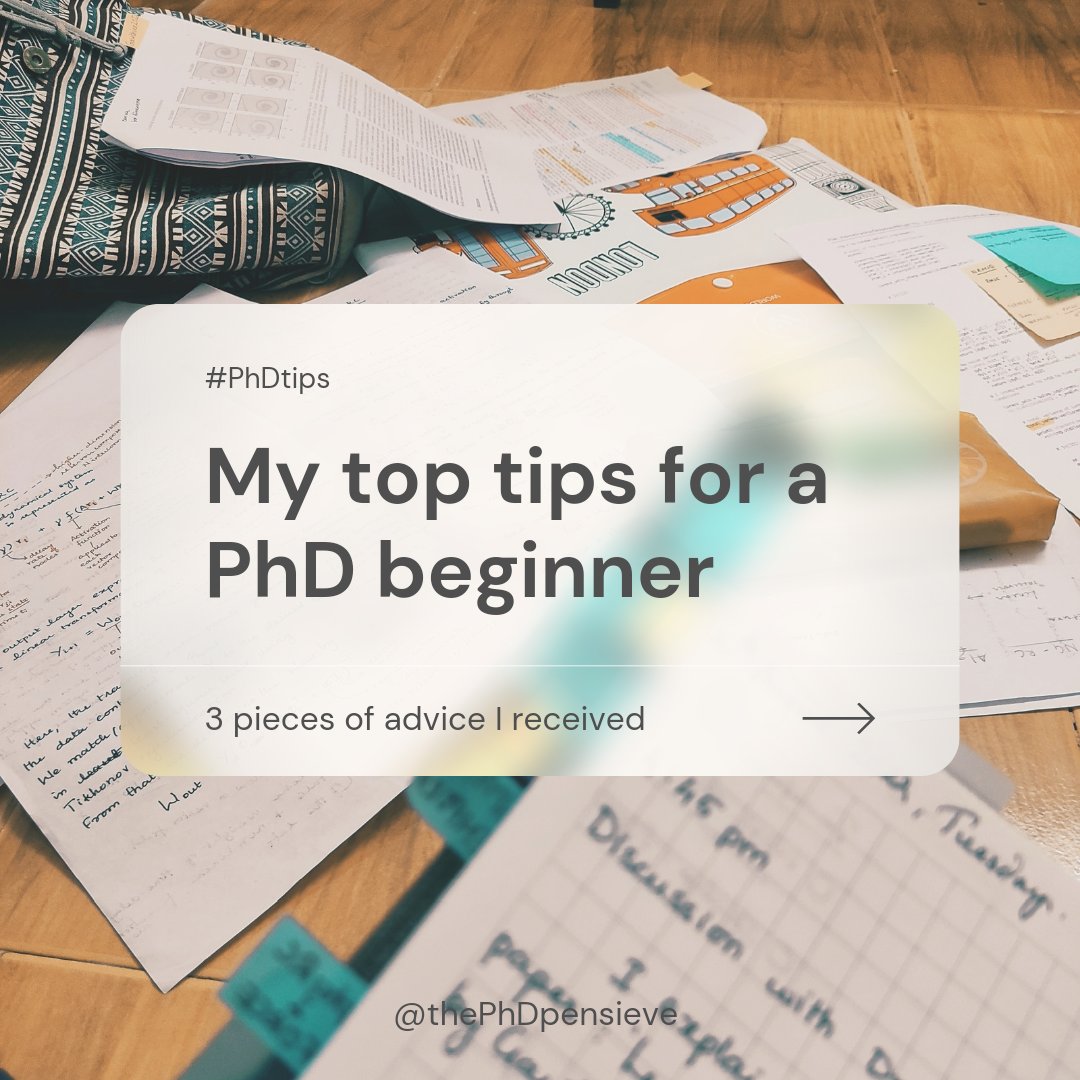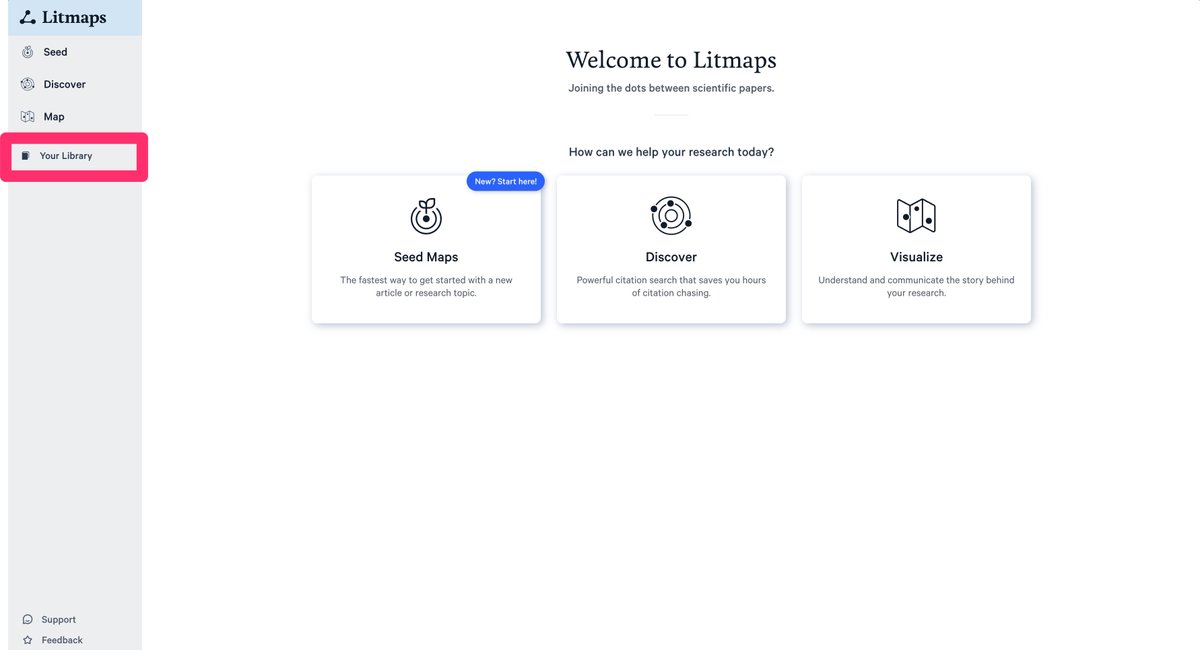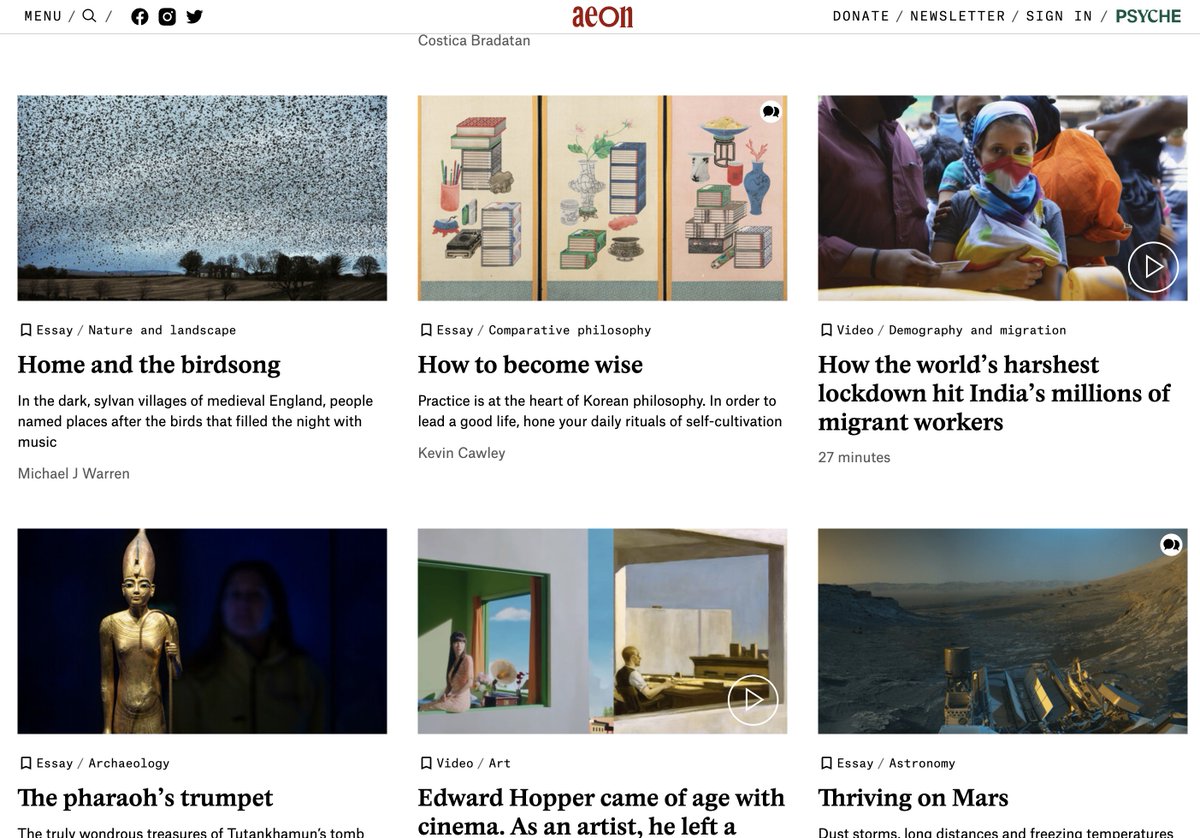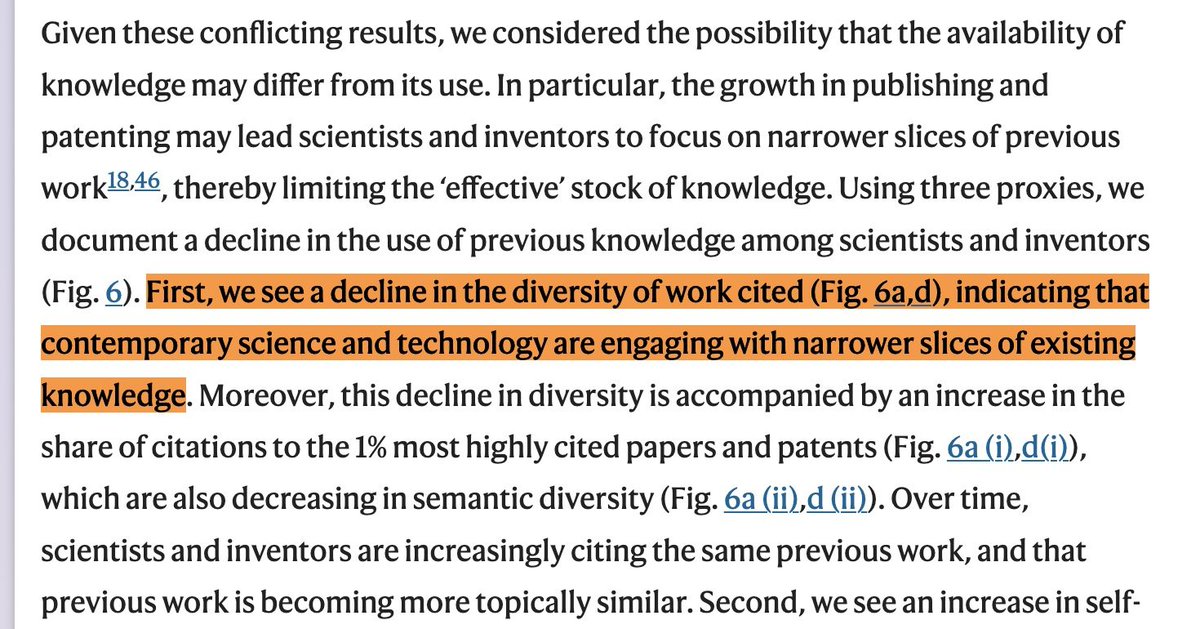Discover and read the best of Twitter Threads about #ScienceTwitter
Most recents (24)
Embarking on the PhD Journey? ✨
Congratulations & here are my top tips for beginners - a 🧵
As a 4th year PhD student, I am sharing the top tips, which I received as a beginner, to help you navigate this rewarding yet demanding experience.
🌻
#PhDBeginnerTips #academicchatter
Congratulations & here are my top tips for beginners - a 🧵
As a 4th year PhD student, I am sharing the top tips, which I received as a beginner, to help you navigate this rewarding yet demanding experience.
🌻
#PhDBeginnerTips #academicchatter

1️⃣Keep a #ResearchJournal
A PhD is a whirlwind of ideas, experiments, and discoveries. A dedicated journal to document everything will be an invaluable resource throughout your journey.
➡️Check out my upcoming tweets on how to maintain a research journal
A PhD is a whirlwind of ideas, experiments, and discoveries. A dedicated journal to document everything will be an invaluable resource throughout your journey.
➡️Check out my upcoming tweets on how to maintain a research journal

2️⃣Have an Unofficial Board of Mentors:
In addition to your guide or doctoral committee, cultivate a network of trusted individuals who can advpice & support you.
➡️This amazing advice is from my mentor & friend @Maddie_Chera, & I have 6 people on my "board" now!😁
#mentoring
In addition to your guide or doctoral committee, cultivate a network of trusted individuals who can advpice & support you.
➡️This amazing advice is from my mentor & friend @Maddie_Chera, & I have 6 people on my "board" now!😁
#mentoring

Thesis Writing 101
I have edited 100,000+ words and tens of theses in science and history (more than I can keep track of!) over the last ten years.
Here are 17 insights from my experience that can help you improve the quality of your #AcademicWriting 🧵
I have edited 100,000+ words and tens of theses in science and history (more than I can keep track of!) over the last ten years.
Here are 17 insights from my experience that can help you improve the quality of your #AcademicWriting 🧵
1. Read aloud: Reading aloud helps to catch errors that were overlooked during silent reading. Find the 'Read Aloud' feature on MS Word under 'Review.'
2. Bring coherency: Make sure that each paragraph flows logically so that the overall #thesis structure is well-organized.
2. Bring coherency: Make sure that each paragraph flows logically so that the overall #thesis structure is well-organized.
3. Improve formatting: Format your #thesis according to your university's guidelines. Adjust the font type, size, header, and footer.
4. Use citation management tools: Using these tools (Mendeley, EndNote, etc.) can help you save time & avoid errors in writing your bibliography.
4. Use citation management tools: Using these tools (Mendeley, EndNote, etc.) can help you save time & avoid errors in writing your bibliography.
1/ 🧪🔬 Ever wondered if scientific research can be predicted? Our latest paper "What's next? Forecasting scientific research trends" tackles this question. Check out the details here 👉 arXiv:2305.04133v1 [thread] 🧵
2/ 🌍 The world of science is constantly evolving. But what if we could predict these trends, especially in life sciences? That's what our work aims to do. Imagine the possibilities!
3/ 📚 We've mined historical publications, research/review articles, and patents. The result? Models that can foresee scientific trends 5 years in advance. Time travel, anyone? #AI #DataScience #timeseries #trends
🤖📚 Descubre las mejores herramientas impulsadas por #AI para la investigación académica y ahorra tiempo para hacer lo que más te gusta
📚 Accede a más información en menos tiempo!
🚀 Dale un impulso a tu investigación académica!
#GPT #DataScience #science #chatGPT #research #ML
📚 Accede a más información en menos tiempo!
🚀 Dale un impulso a tu investigación académica!
#GPT #DataScience #science #chatGPT #research #ML

✅Scispace
Espacio de trabajo para automatizar tareas
Obtén una explicación simple de texto, matemáticas y tablas confusas
Haz preguntas de seguimiento y obtén respuestas instantáneas
Busca papers relevantes
Mejora la colaboración
buff.ly/3gz7LhQ
#Researchtools #science
Espacio de trabajo para automatizar tareas
Obtén una explicación simple de texto, matemáticas y tablas confusas
Haz preguntas de seguimiento y obtén respuestas instantáneas
Busca papers relevantes
Mejora la colaboración
buff.ly/3gz7LhQ
#Researchtools #science

✅Elicit
Automatiza flujos de trabajo
Encuentra papers relevantes sin palabras clave exactas
Resume conclusiones del documento específicas para tu pregunta
Extrae información clave de los documentos
Lluvia de ideas, resumen y clasificación de textos
buff.ly/30DwBok
#GPT4
Automatiza flujos de trabajo
Encuentra papers relevantes sin palabras clave exactas
Resume conclusiones del documento específicas para tu pregunta
Extrae información clave de los documentos
Lluvia de ideas, resumen y clasificación de textos
buff.ly/30DwBok
#GPT4
Was bewirkt das Eckpunktepapier #WissZeitVG auf Post-Doc-, Studiengangs-, Forschungsprojekt- und Hochschulebene? Einige Einordnungen aus Sicht einer JunProf*in & Nachwuchsgruppenleiter*in, die den akademischen Betrieb in D und UK gut kennt. 🧵
1/ Post-Docs müssen sich verstärkt aufs Kerngeschäft konzentrieren: Peer-review-Artikel, Bewerbungen, ein Drittmittelantrag, Internationalität. Keine Zeit für Lehre, Gremien, Outreach. Keine Zeit für Care-Arbeit in der "rush hour" des Lebens.
2/ Für Frauen, Queers, BIPOC, Personen mit Care-Verantwortung und Erstakademiker*innen wird die Latte noch höher gelegt. JunProf mit Tenure-Track privilegiert ohnehin Bildungseliten (=> Michael Hartmanns Forschung)
If you're serious about thinking, take notes.
If you're serious about notes, use Obsidian.
If you're serious about Obsidian, there's still a 99% chance, you don't know these hidden features.
Join the 1%.
👇
#ScienceTwitter #AcademicTwitter
If you're serious about notes, use Obsidian.
If you're serious about Obsidian, there's still a 99% chance, you don't know these hidden features.
Join the 1%.
👇
#ScienceTwitter #AcademicTwitter
1. Quick Switcher
Find any note in seconds.
If you want to learn one hotkey for Obsidian, this is the one.
⌨️ CTRL + O (Win) or CMD + O (Mac)
Similar to this is the hotkey for "Command Palette". Allow you to do the same but to find actions, like "export".
Find any note in seconds.
If you want to learn one hotkey for Obsidian, this is the one.
⌨️ CTRL + O (Win) or CMD + O (Mac)
Similar to this is the hotkey for "Command Palette". Allow you to do the same but to find actions, like "export".
2. Stacking Tabs
Having dozens of tabs open - try stacking them.
Now you can scroll horizontally to switch between the tabs.
New tabs open into the stack, right of your current note.
Click the arrow on top right & select "Stack Tabs".
Having dozens of tabs open - try stacking them.
Now you can scroll horizontally to switch between the tabs.
New tabs open into the stack, right of your current note.
Click the arrow on top right & select "Stack Tabs".
#Vaccineswork Here is an antivax-astronomy crossover. When Halley's comet was coming back to Earth, cyanogen was discovered in its tail, along with the knowledge that Earth was going to pass through. There was great consternation that we were going to get cyanogen poisoning. 

People capitalized on the opportunity to sell cyanogen protection kits, pills, and gas masks, all the while - forgetting a fundamental principle of physics known as density. That's 3.75$ per pill, in US $ in 2023 approximately. #astronomy #charlatan #ScienceTwitter 

While it is true that concentrated cyanogen/ cyanide is toxic, you are highly highly unlikely to get hurt by 10 molecules of cyanogen blowing past you. The dose makes the poison. The anti-comet pill dudes don't want you to know that.
Academics, whether you like it or not – AI and #ChatGPT aren't going anywhere.
Here's where it excels, bitterly fails and why this is so.
8 real world examples for scientists.
👇
#ScienceTwitter #AcademicTwitter
Here's where it excels, bitterly fails and why this is so.
8 real world examples for scientists.
👇
#ScienceTwitter #AcademicTwitter
1. Summarize a long text to bullet points
💻 "Outline, [using bullet points], max 100 words: [your text]"
(If you have bullet points, you can alternatively ask to shorten [each bullet point])
Here's a summary for "History of the poodle" (wikipedia).
💻 "Outline, [using bullet points], max 100 words: [your text]"
(If you have bullet points, you can alternatively ask to shorten [each bullet point])
Here's a summary for "History of the poodle" (wikipedia).

2. Rephrase and fix grammar
💻"Rephrase and fix grammar in my text: [your text]"
You can quickly fix typos, commas and so on.
Especially useful if english is not your first language.
💻"Rephrase and fix grammar in my text: [your text]"
You can quickly fix typos, commas and so on.
Especially useful if english is not your first language.
How to start a literature review from a single keyword.
I tried about a dozen tools.
Conclusion: This effortless workflow with @OK_Maps and @paperpile
🧵👇
#AcademicChatter #ScienceTwitter #AcademicTwitter
I tried about a dozen tools.
Conclusion: This effortless workflow with @OK_Maps and @paperpile
🧵👇
#AcademicChatter #ScienceTwitter #AcademicTwitter
@OK_Maps @paperpile 1. Start with a search term
Think of OKMaps as a better google for your very first step of lit research.
Simply type in a topic and see relevant papers sorted in groups.
Refine your results by date if you are looking for a specific period, or newest papers.
Think of OKMaps as a better google for your very first step of lit research.
Simply type in a topic and see relevant papers sorted in groups.
Refine your results by date if you are looking for a specific period, or newest papers.

@OK_Maps @paperpile 2. See results
OKMaps will find a number of most relevant papers, arranged by category.
Each bubble contains papers of a single category.
On the right side you can refine your search textually or by date.
OKMaps will find a number of most relevant papers, arranged by category.
Each bubble contains papers of a single category.
On the right side you can refine your search textually or by date.

The first time I did a literature review, it took me months.
Now i can do it in a week.
How?
I spent 500+ hours refining a system for my notes. Here's is the end result:
👇
#AcademicChatter #AcademicTwitter #ScienceTwitter
Now i can do it in a week.
How?
I spent 500+ hours refining a system for my notes. Here's is the end result:
👇
#AcademicChatter #AcademicTwitter #ScienceTwitter
1. Get one tool.
I use @obsdmd, as an "academic operating system".
It contains everything: My notes, PDFs, annotations, mind maps, writing.
Don't get stuck in the past with MS Word.
I use @obsdmd, as an "academic operating system".
It contains everything: My notes, PDFs, annotations, mind maps, writing.
Don't get stuck in the past with MS Word.
@obsdmd 2. Create a simple structure for your notes. Simplicity will determine how much you use it.
"Don't make me think" is the core principle here.
Here's is a system I have been using for 100s of notes – effortlessly.
It relies on 4 types of notes:
"Don't make me think" is the core principle here.
Here's is a system I have been using for 100s of notes – effortlessly.
It relies on 4 types of notes:

Failing to plan – is planning to fail.
Whether you start a PhD, secured a grant or have a project,
you'll probably make a plan.
As an ex-CEO I did a lot of planning.
Now I apply it to my PhD, here's how:
👇
#ScienceTwitter, #academicWriting
Whether you start a PhD, secured a grant or have a project,
you'll probably make a plan.
As an ex-CEO I did a lot of planning.
Now I apply it to my PhD, here's how:
👇
#ScienceTwitter, #academicWriting

The first step is to zoom out as far as you can.
See your strategy. See the end goal. See each milestone.
See your strategy. See the end goal. See each milestone.
Now zoom into your next milestone.
And make a new strategy on how to achieve just this.
Do the tasks seem doable?
Then it's time to use a board to organise yourself.
And make a new strategy on how to achieve just this.
Do the tasks seem doable?
Then it's time to use a board to organise yourself.
Read less – learn more.
Cut down your PhD or literature review reading list by 75%:
Here is a simple 3-step workflow:
🧵👇
#AcademicChatter #ScienceTwitter #AcademicTwitter
Cut down your PhD or literature review reading list by 75%:
Here is a simple 3-step workflow:
🧵👇
#AcademicChatter #ScienceTwitter #AcademicTwitter
We will use the 80/20 principle and identify the 20% top papers from these 3 categories:
► Most Cited: Foundational, often dated work
► Most Recent: Cutting edge, often no citations
► Most References: Review papers
It's super easy with @LitmapsApp. (free acct is enough)
► Most Cited: Foundational, often dated work
► Most Recent: Cutting edge, often no citations
► Most References: Review papers
It's super easy with @LitmapsApp. (free acct is enough)
@LitmapsApp 1. Navigate to "Your Library" in Litmaps.
Your library is organised in collections, or folders containing your papers.
(If you're using Zotero, Mendeley etc, I'll show you how to import into litmaps in a second. )
Your library is organised in collections, or folders containing your papers.
(If you're using Zotero, Mendeley etc, I'll show you how to import into litmaps in a second. )

What is the simplest organisation tool for academics?
► Trello
Use boards to organise research, lab inventory or job applications.
Alone or as a team. It's free.
A beginner step-by-step guide 👇
#ScienceTwitter #AcademicTwitter
► Trello
Use boards to organise research, lab inventory or job applications.
Alone or as a team. It's free.
A beginner step-by-step guide 👇
#ScienceTwitter #AcademicTwitter

This is what AI can do today, #ScienceTwitter:
⏵ Discover new literature
⏵ Understand and summarise, even math
⏵ Write your papers
The game is changing – fast.
Here's my list of the 9 essential AI tools in research:
(With prices and use-cases)
👇
⏵ Discover new literature
⏵ Understand and summarise, even math
⏵ Write your papers
The game is changing – fast.
Here's my list of the 9 essential AI tools in research:
(With prices and use-cases)
👇

🧭 | @LitmapsApp
Discover similar papers from one ore more publications.
Will often display fewer (more relevant?) papers, compared to other apps.
Intuitively guides through the discovery process.
✔︎ Effortless Literature Discovery
💲Free for small maps, then 10$/mo
Discover similar papers from one ore more publications.
Will often display fewer (more relevant?) papers, compared to other apps.
Intuitively guides through the discovery process.
✔︎ Effortless Literature Discovery
💲Free for small maps, then 10$/mo

@LitmapsApp 🧭 | @RsrchRabbit
Upload your research library and ask to find similar papers.
Very thorough and fast but results in huge amounts of results.
The software takes some time to get used to.
✔︎ Thorough literature review
💲Free
Upload your research library and ask to find similar papers.
Very thorough and fast but results in huge amounts of results.
The software takes some time to get used to.
✔︎ Thorough literature review
💲Free

Declining Disruption.
#ScienceTwitter is abuzz with this recently published nature article.
I read into the study and 100s of comments.
Consensus: Grants and journals are to blame.
But the authors give a much better, more personal insights.
Here's what I learned:
👇
#ScienceTwitter is abuzz with this recently published nature article.
I read into the study and 100s of comments.
Consensus: Grants and journals are to blame.
But the authors give a much better, more personal insights.
Here's what I learned:
👇

Tired of the same old bar graphs and line plots, #ScienceTwitter?
Here are 5 lesser-known but powerful graphical methods for visualizing your next publication.
👇
Here are 5 lesser-known but powerful graphical methods for visualizing your next publication.
👇

I made a poll in #AcademicTwitter.
❌ More than 80% don't know this tool yet (p < 0.05).
So here is a beginners guide to @authorea,
an online tool to write your papers.
If you haven't heard of it, you will love it.
⬇️ 🎥 🏞️
#AcademicChatter #ScienceTwitter
❌ More than 80% don't know this tool yet (p < 0.05).
So here is a beginners guide to @authorea,
an online tool to write your papers.
If you haven't heard of it, you will love it.
⬇️ 🎥 🏞️
#AcademicChatter #ScienceTwitter

@authorea @authorea makes writing a paper with multiple authors easy.
No more emailing files back and forth.
Make an account on Authorea . com
Price:
• Free for <10 documents
• 10$ / mo for unlimited
• 100$ / mo to publish and get a DOI
Once logged in, hit the + button at the top.
No more emailing files back and forth.
Make an account on Authorea . com
Price:
• Free for <10 documents
• 10$ / mo for unlimited
• 100$ / mo to publish and get a DOI
Once logged in, hit the + button at the top.

@authorea 2. EDITING
As simple as Word or Google Docs,
with all your academic needs taken care of.
Hit the "insert" button at the top to add:
☑︎ Citations
☑︎ Formulae (Latex)
☑︎ Figures
☑︎ Tables
As simple as Word or Google Docs,
with all your academic needs taken care of.
Hit the "insert" button at the top to add:
☑︎ Citations
☑︎ Formulae (Latex)
☑︎ Figures
☑︎ Tables

Hey #AcademicTwitter
Collaborating on your paper/thesis/manuscript 🧑🤝🧑.
How do you do it?
Asking for a friend.
#AcademicChatter #ScienceTwitter
Collaborating on your paper/thesis/manuscript 🧑🤝🧑.
How do you do it?
Asking for a friend.
#AcademicChatter #ScienceTwitter
Wow so much participation, thank you everyone one.
I made a small tutorial on the "other" section. Coming in a tiny bit.
Also curious to hear the experiences, what annoys you about the current workflow.
I made a small tutorial on the "other" section. Coming in a tiny bit.
Also curious to hear the experiences, what annoys you about the current workflow.
Google Docs won!
You are then ready for the "Google Docs for Academics"
You are then ready for the "Google Docs for Academics"
The most undervalued skill in academia?
Creativity.
As a young boy, I read in a magazine: Original ideas come from diverse impressions.
→ Four things that taught me something new & diverse:
• a website
• a book
• a newsletter
• a podcast
What are yours #ScienceTwitter?
Creativity.
As a young boy, I read in a magazine: Original ideas come from diverse impressions.
→ Four things that taught me something new & diverse:
• a website
• a book
• a newsletter
• a podcast
What are yours #ScienceTwitter?

Website: @aeonmag
Ad free essays on every conceivable topic.
At 2000 - 6000 words each article is a commitment.
But it leaves you transformed.
Aeon is what the internet should have been all about - consider donating, if you can afford.
Ad free essays on every conceivable topic.
At 2000 - 6000 words each article is a commitment.
But it leaves you transformed.
Aeon is what the internet should have been all about - consider donating, if you can afford.

@aeonmag Book: Olaf Stapledon, Star Maker
Science Fiction from 1937.
A man wakes up floating in space.
Witnesses billions of years of the universe evolving.
So who is the "Star Maker"?
Sci-Fi that ends up very spiritual & philosophic. I devoured this book.
Science Fiction from 1937.
A man wakes up floating in space.
Witnesses billions of years of the universe evolving.
So who is the "Star Maker"?
Sci-Fi that ends up very spiritual & philosophic. I devoured this book.

Are you feeling like an Imposter in academia?
Good, you share something with A Einstein, M Curie and 70% of #ScienceTwitter.
Imposter syndrome is built on 3 psychological effects:
- Dunning-Kruger Effect
- Confirmation Bias
- Modesty Bias
This 🧵 is about disarming them⬇️
Good, you share something with A Einstein, M Curie and 70% of #ScienceTwitter.
Imposter syndrome is built on 3 psychological effects:
- Dunning-Kruger Effect
- Confirmation Bias
- Modesty Bias
This 🧵 is about disarming them⬇️
🌩️ Dunning-Kruger Effect
"Knowing very little about a thing leads you to overestimate your abilities"
But: The more you know, the easier something seems, thus you start overestimating others abilities.
Or underestimating yours: You feel like an imposter BECAUSE you excel.
"Knowing very little about a thing leads you to overestimate your abilities"
But: The more you know, the easier something seems, thus you start overestimating others abilities.
Or underestimating yours: You feel like an imposter BECAUSE you excel.

🌩️ Confirmation Bias
"Tendency to seek confirmation, for what you believe in."
Once we start feeling like an imposter, we subconsciously seek out confirmation for it and thus "feed" the problem.
@DrJoeDispenza calls it "Addiction to failure"
"Tendency to seek confirmation, for what you believe in."
Once we start feeling like an imposter, we subconsciously seek out confirmation for it and thus "feed" the problem.
@DrJoeDispenza calls it "Addiction to failure"
Struggling with R or Python?
Leverage @OpenAI and #ChatGPT to learn and solve your data analysis challenges.
I am just blown away 🤯 ! Here are a few use cases of what you can do.
#AcademicTwitter #sciencetwitter @OpenAcademics @AcademicChatter @PhDVoice @PostdocVoice
⬇️
Leverage @OpenAI and #ChatGPT to learn and solve your data analysis challenges.
I am just blown away 🤯 ! Here are a few use cases of what you can do.
#AcademicTwitter #sciencetwitter @OpenAcademics @AcademicChatter @PhDVoice @PostdocVoice
⬇️
@OpenAI @OpenAcademics @AcademicChatter @PhDVoice @PostdocVoice First I asked it a straight forward question to load a CSV file with "width, length, depth and weight in R": 

@OpenAI @OpenAcademics @AcademicChatter @PhDVoice @PostdocVoice Ask for Ideas on what to do with the data.
ex "How could I visualise the four dimensional data?"
ex "How could I visualise the four dimensional data?"

Tutorial: Using @obsdmd for notes AND as a reference manager (and even replace @zotero).
Why?
☝️Keeping your interlinked notes, annotations and PDFs in one place is incredibly powerful when you want to write and publish fast!
#ScienceTwitter @OpenAcademics @AcademicChatter
Why?
☝️Keeping your interlinked notes, annotations and PDFs in one place is incredibly powerful when you want to write and publish fast!
#ScienceTwitter @OpenAcademics @AcademicChatter
1. Create a note and name it in your usual citation style. e.g. "Connell 1964". Use a template where you include the DOI at the top. Here is an example 

2. Scroll down to the bottom of the note and use the "Inset Attachment" command. (Hit ctrl/⌘ + P and type in "Insert Attachment")
Now select the file you have downloaded to embed it directly into the note.
Pro Tip: Assign a Hotkey to "Insert Attachment" to use it instantly.
Now select the file you have downloaded to embed it directly into the note.
Pro Tip: Assign a Hotkey to "Insert Attachment" to use it instantly.
Le climat, les courants et les caractéristiques des espèces contribuent aux premiers stades de la redistribution des espèces marines.
On va en parler dans ce #Thread , vulga de l'article.
#ScienceTwitter #Biology #ecology
nature.com/articles/s4200…
On va en parler dans ce #Thread , vulga de l'article.
#ScienceTwitter #Biology #ecology
nature.com/articles/s4200…
Cette étude est un compte rendu des facteurs à l'origine des premières étapes de la redistribution des espèces marines. Elle fournit des preuves importantes pour l'évaluation de la vulnérabilité des distributions des espèces marines au changement climatique.
The spectacle, that Debord warned us about, is undoubtedly present in Academia. Publications are a commodity. Appearing to be a good scientist matters more than actually being one. Metrics of "performance" are based on # of pubs, h index and impact factors. A🧵#AcademicTwitter
More than just mathematical naïveness, taken together, these factors contribute to and amplify the commodification of science. The "need" to publish more (& quicker) reinforces predatory publication practices - that are not exclusive to small publishers anymore. (2/n)
I don't want to be a prophet of the apocalypse, but, IMHO, what we're seeing is unsustainable. What incentives are there for starting a long-term project? E.g.: A longitudinal study with a long follow-up? A project that might take years to generate its first paper. (3/n)







